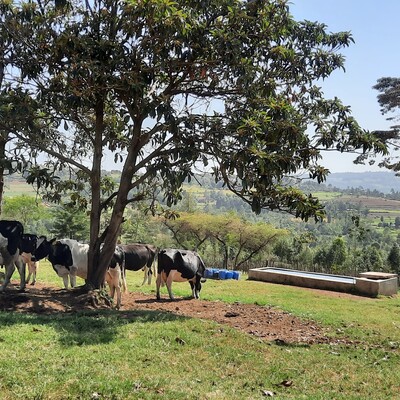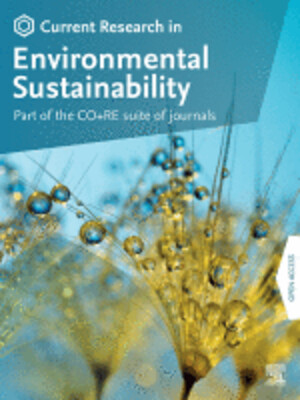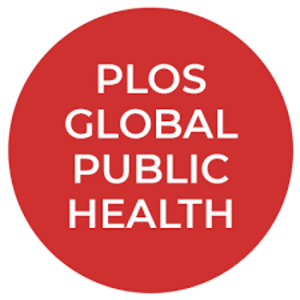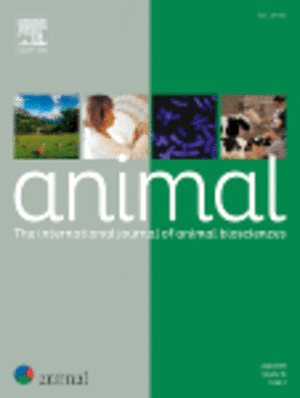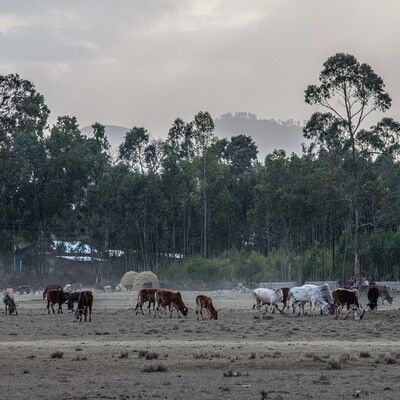
ILRI's Shirley Tarawali outlines the path towards climate-resilient food systems at the Global Forum for Food and Agriculture
In January 2023, the Global Forum for Food and Agriculture held a four-day event providing an opportunity for international experts to discuss challenges relating to global agricultural policy and food security. This included an expert panel on January 20 titled ‘Managing drought, fire, and flood risk to create climate resilient food systems’, organised by the Australian Mission to the European Union. The panel discussion brought together Shirley Tarawali, acting director general at ILRI, Tim Cullinan, President of the Irish Farmers’ Association and Vice President of Copa Cogeca, Murray Watt, Australia’s Minister for Agriculture, Fisheries and Forestry, and Max Makuvise, a Zimbabwean cattleman with 25 years of experience in the industry. Moderated by Rose O’Donovan, editor at Agra Facts, the panel discussed how we can build resilient food systems and manage the risks associated with more frequent and intense climatic events as they become the norm around the world.
As Tarawali explained during the panel discussion, about 45 per cent of the global terrestrial surface is classified as 'rangelands used by livestock'. These lands support a tremendous diversity of farmers, from large-scale industrial farmers with thousands of cattle to small-scale farmers working on just a few hectares of land who provide most of the food in low- and middle-income countries. Around 30 per cent of rangelands are pastoral systems where it is either too hot or too cold to grow crops. In these regions, 'well-managed pastoral systems provide necessary food in the form of meat and milk as well as valuable ecosystem services such as biodiversity conservation and carbon sequestration', said Tarawali. This makes them a key component of climate-resilient food systems.
Tarawali believes that understanding the tremendous diversity across rangeland systems is crucial to avoiding one-size-fits-all solutions that overlook the importance of small-scale farmers and pastoralists. To adequately address food insecurity, we 'have to focus on smallholder farming systems and how they can produce more food in an environmentally sustainable and equitable manner', said Tarawali.
Tarawali highlighted two major interventions focused on addressing pastoral systems' vulnerability to climate-related events. The first is ILRI's work to develop Index-based Livestock Insurance (IBLI), which offers pastoralists and farmers payouts triggered by satellite information on forage availability that predicts when livestock mortality will rise. So far, this has reduced the likelihood of households who purchased insurance skipping meals by 27-36 per cent and distress livestock sales by 22-36 per cent. Moving forward, the Kenyan government and World Bank are investing in scaling up the insurance tool to strengthen resilience and avoid drought emergencies.
Tarawali also pointed to work being done by the Jameel Observatory, an international partnership led by the University of Edinburgh, collaborating with ILRI, Save the Children, the Abdul Latif Jameel Poverty Action Lab (J-PAL) and Community Jameel. Based at ILRI's Nairobi campus, the Jameel Observatory combines communities' local knowledge and concerns with innovations in data science and humanitarian action to devise solutions that can predict, prepare for and overcome climate-related food security and malnutrition challenges in dryland areas.
Tarawali then highlighted opportunities to involve farmers on the ground, noting the 'win-win-win opportunities' offered by technologies that improve animal productivity and in turn, also lower greenhouse gas emissions and result in more livestock products to sell. Getting those technologies into the hands of farmers will require multi-stakeholder partnerships that take research solutions to scale and ensure they are sustainable. One approach being used by ILRI scientists is called 'adaptation pioneers', which refers to farmers in a community who can adapt new solutions to local circumstances. When such farmers are connected with others, there is great potential for taking solutions to scale.
Tarawali concluded with a critical point: Just as conflict, COVID-19 and climate change have exposed the vulnerability of global food systems, they have also highlighted how interconnected we are. Successful efforts to improve global food security and community resilience to climate-related risks will require innovative international partnerships that support new opportunities to apply the latest technologies and data science in diverse environments around the world.
Improvised feeding trough, Mongu, Western Zambia. Photo by Felix Clay/Duckrabbit.











